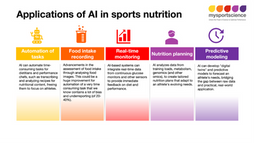How much caffeine is in coffee?
- Asker Jeukendrup
- Jun 16, 2015
- 3 min read
Updated: Sep 21, 2020
Coffee is one of the most popular drinks worldwide and a major source of caffeine consumption. Coffee may be even more popular amongst athletes, in particular endurance athletes. Athletes may use coffee and caffeine for its performance enhancing properties or simply as a lifestyle drink that has gained popularity in recent years.

Coffee or caffeine powder?
Recently we found that caffeine in powder form or caffeine in coffee has similar effects on endurance performance. So you can drink a coffee and get benefits if pills and other caffeine containing products put you off. It appeared that both coffee and caffeine improved endurance performance by about 4%. For a discussion of this study see this blog on caffeine versus coffee.
Coffee and performance
So how much coffee do we need to drink to see performance benefits. In the study mentioned above the dose was quite high: 5 milligrams per kilogram bodyweight, almost 400 milligrams. In the study 2 large mugs of instant coffee.
Effects are seen at lower doses of 3 mg per kg and this can easily be delivered by drinking coffee. But how much caffeine is in coffee? Caffeine levels vary greatly - due to variations in coffee blend, exact amount of ground coffee used, and brewing technique. Also the size of the serve varies tremendously.

Caffeine content of coffee varies
Espresso coffee is made from 7 grams of finely ground coffee extracted to 1.5 fluid ounces (44 mls) over about 25 seconds. The amount of coffee used by baristas (they refer to this as a shot) varies and is not always 7 grams. Analysis of 97 different espresso drinks in Queensland, Australia found an average of 106 mg of caffeine per serve. In this study by Dr Ben Desbrow and colleagues there was a very wide range though, from as little as 25mg to as much as 214mg per cup.
Analysis found an average of 106mg of caffeine per espresso
A review of caffeine levels in hot beverages in the United Kingdom showed a similar broad range of 15–254 mg caffeine per serve. In this study the coffee samples included espressos, long blacks, lattes, filter and cappuccino style coffees. In another Australian study by Dr Ben Desbrow and the team from Griffith University in Australia different coffees were compared from a large number of vendors. They confirmed a wide range of caffeine content in coffees but also observed that even from the same outlet there was considerable variation in caffeine content. For example, an espresso purchased from the same Starbucks outlet could contain 63 or 91 mg and from Donut King 82 or 214 mg.
Even from the same outlet there was considerable variation in caffeine content
Coffee varies depending on the way it is prepared. Espresso coffee provides the highest concentration (but is served in much smaller quantities), percolated or boiled coffee provide higher concentrations than drip, filter, French press of plunger coffee.

Practical implications
What does this all mean for the athlete? If you want to know exactly how much caffeine you are ingesting, coffee may not be the preferred way, because of the variation. Instant coffee could be a way around this because its caffeine content seems pretty constant. Nescafe Original instant coffee provides 170mg caffeine/5 g of instant coffee. If you are not too worried about the exact dose and enjoy a good cup of coffee, a double espresso an hour before the start of a race will probably do no harm.











